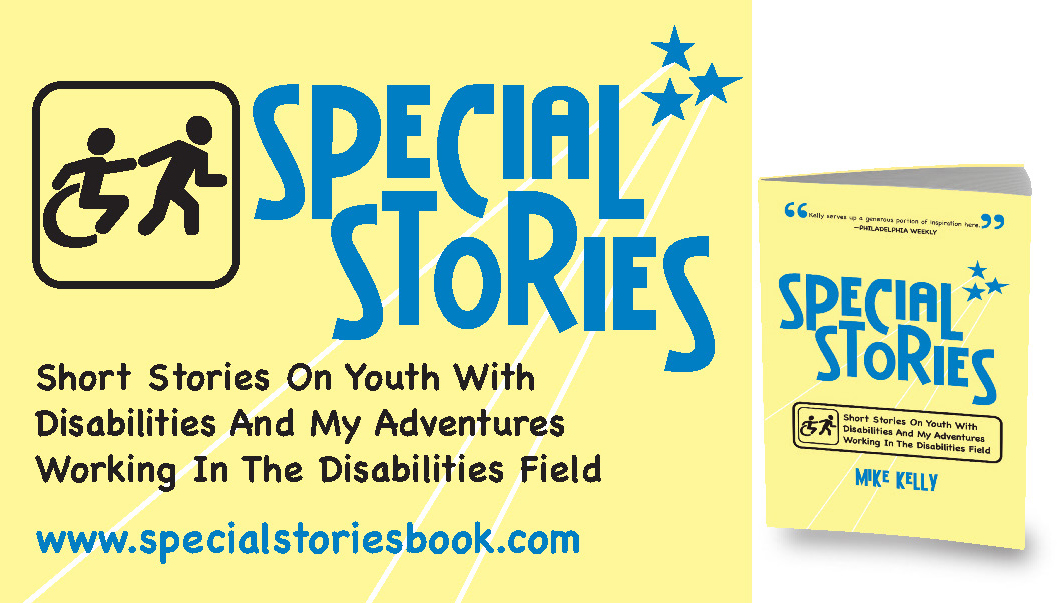Book featuring children with disabilities- Double standard for kids with disabilities
While there are a great many people out in the business world who will bend over backward to accommodate my students at work, I’ve come to find out there are even more that won’t. These folks always seem to watch my students more closely than they observe other new hires without disabilities.
It’s possible they don’t believe people with various challenges should be working, so they’re waiting for any type of mistake to prove to themselves and society-at-large that people with disabilities don’t belong in the workplace. It could be some other reason. Who knows?
I could write another book just on this subject matter and cite many examples. But here’s one case in point: My student, Vineeta (not her real name)—a smart, polite, respectful, and hardworking seventeen-year-old on the autism spectrum.
At her summer day camp job where I served as her job coach to help transition her into work, Vineeta’s each and every move was carefully observed by a handful of hawk-eyed camp associates, with Vineeta’s daily performance scrutinized at the end of each day.
While I commended Vineeta on her fine work, others did not. They unnecessarily picked her apart.
If Vineeta politely asked a question at a time not so convenient for her supervisor, I’d hear about it. If Vineeta laughed a little too loud one time, that incident would be brought to my attention. If Vineeta accidentally kicked up a bit of sand while playing with students in the sandbox, it would be handled as a matter of national crisis. If a wasp flew around Vineeta’s head and she freaked out (like my wife does or my niece does or some of my friends do—all of whom are without disabilities), I’d have to implement a behavioral modification plan to curb this behavior to satisfy the camp owners and directors to make sure it never happens again. Utter nonsense, I thought.
I spent a lot of time with Vineeta and observed her doing a fantastic job at work. For the record, I’m not one of those who gives praise and participation awards and trophies to everyone. Someone must first earn that praise or reward from me before I give it. When Vineeta needed some redirection or assistance or advice, she was always eager to take it, and then use it.
I found it interesting that all of this attention and scrutiny was being heaped on Vineeta. Considering that during my time spent job coaching her at this same day camp I observed one female teen counselor about Vineeta’s age (not someone with a disability), while goofing around, toss a hula hoop high in the air toward a group of unsuspecting kids ten yards away—the hula hoop landing on the back of the head a six-year-old girl, making her fall down and cry.
Though the act was observed by at least one camp supervisor, she turned a blind eye to the matter. Because that teen counselor remained at work not only that day, but also the days thereafter. Not a peep of job scrutiny.
Could you imagine if Vineeta did that? As soon as the hula hoop left Vineeta’s hand, a team of staff members would descend upon the scene, letting Vineeta know this behavior will not be tolerated. And then Vineeta would be terminated on the spot. After she was let go, I’m sure the camp supervisors would say amongst themselves in the break room, “I knew we shouldn’t have hired her . . .”
Also at this same day camp, I observed other teen counselors (not with disabilities) about Vineeta’s age using profanity near kids, texting with their backs facing the in-ground swimming pool when they should have been watching the kids in the pool (their job!), one teen counselor teasing a child by sitting in the child’s chair and refusing to get up, making the four-year-old cry, and other bad behaviors that should have warranted disciplinary action or firing.
All of those teen camp counselors went without reprimand and, in fact, remained working for the duration of the summer camp.
Vineeta would be fired for doing any one of those things.
Not a big fan of double standards.
Since we’re on the topic of double standards . . . it’s been my experience that the people I’ve come across who fight hardest for the rights and inclusion of kids with disabilities are mostly people who have loved ones with disabilities. I understand why. They live it so they get it.
On the other hand, it’s been my experience that the people who offer the most resistance to my students are mostly people that don’t have a child or loved one with a disability. (I know because I’ve asked them.) They don’t get it.
Why is it that in order for someone to get it, they have to themselves have a disability or have a loved one with a disability?
I don’t have a disability or a loved one with a disability and I get it. I also know a great many people who don’t have a loved one with a disability and they also get it. By my estimation, those of us who do get it are greatly outnumbered by those who don’t.
You can bet if those who don’t get it suddenly had a child with a disability, they’d be the first ones demanding their child be hired for a job. And if their child wasn’t hired, they’d be the first to hire a lawyer to sue the business for discrimination. They’d also be the people shouting loudest from the rooftops that their child should be included in our society and not be discriminated against just because she or he has a disability.
I think it’s hypocritical. We should ALL get it.
To read more stories about kids with disabilities, visit www.specialstoriesbook.com
https://www.specialstoriesbook.com//wp-content/uploads/2017/08/SSFlier.pdf

